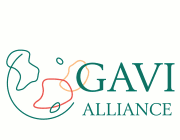 |
|
|
Vaccination: An Act of Love – Now and for the Future An editorial released April 2005 Recent outbreaks of a deadly diarrheal disease in Central America have galvanized national leaders, doctors, nurses and parents, as they battle against the killer disease known as rotavirus. Though it affects rich and poor children alike, the disease causes most of its devastation in developing countries, where rotavirus strikes mainly infants and young children; each year approximately 500,000 children around the world die from the disease. In Latin America, rotavirus kills an estimated 15,000 children each year, and hospitalizes about 75,000. Children infected with rotavirus suffer vomiting and fever, followed by severe diarrhea and dehydration and, frequently, death. El Salvador and Nicaragua have faced serious rotavirus outbreaks this year, and last year an outbreak in Guatemala killed 50 children and sickened nearly 40,000 in one month alone. Rotavirus is costly in every sense. Not only does it kill in great numbers, but for those who survive it, the medical costs of treating the disease can be quite high. Each year hospitalizations due to rotavirus costs Latin American countries millions of dollars. For now, the only solution is to act early to detect the disease, and administer timely and effective oral rehydration therapy. These steps can help combat the effects of rotavirus, but they are not the solution. Vaccination against this deadly disease is the best way to prevent the deaths and suffering of the children afflicted. Fortunately, new vaccines against rotavirus are on the horizon. This week, under the auspices of the Pan American Health Organization (PAHO), an annual campaign known as “Vaccination Week in the Americas” is being launched to emphasize the importance of routine immunization. The Americas have always been a leader in global efforts to vaccinate children, as evidenced by this region being the first in the world to eradicate smallpox in 1973 and polio in 1991. Earlier this year, Mexico became the first country in the world to introduce a new rotavirus vaccine, once again demonstrating the region’s leadership in vaccination. The experience in Mexico will demonstrate the public health impact, as well as help inform the public and decision-makers about the potential benefits of rotavirus vaccines. If history is to repeat itself, Latin America will once again lead the way in introducing new, life-saving vaccines. “Love them, Protect Them, Immunize Them” is this week’s slogan in the Americas about the need to protect children through vaccination: We couldn’t agree more. Public and private partners, working with national leaders, health care workers and parents, can make it happen by bringing life-saving vaccines to save even more children’s lives. As representatives of organizations that are working to accelerate the development and introduction of new rotavirus vaccines, we wholeheartedly endorse the effort in the Americas to reinvigorate interest in vaccination. There is no better way to show your love for children than to protect their health. # # # The authors are Ciro A. de Quadros, MD, MPH, director of international programs, Albert B. Sabin Vaccine Institute in Washington, DC, USA; and John Wecker, PhD, director of the Rotavirus Vaccine Program (RVP), an affiliate of PATH, an international nonprofit organization based in Seattle, Washington, USA. De Quadros is former director of the Division of Vaccines and Immunization at the Pan American Health Organization (PAHO). |
En Español Additional information Rotavirus Vaccine Program Sabine Vaccine Institute Download In English (PDF - 139K) En Español (PDF - 132K) |
||||||
|
|
|
Copyright © GAVI |